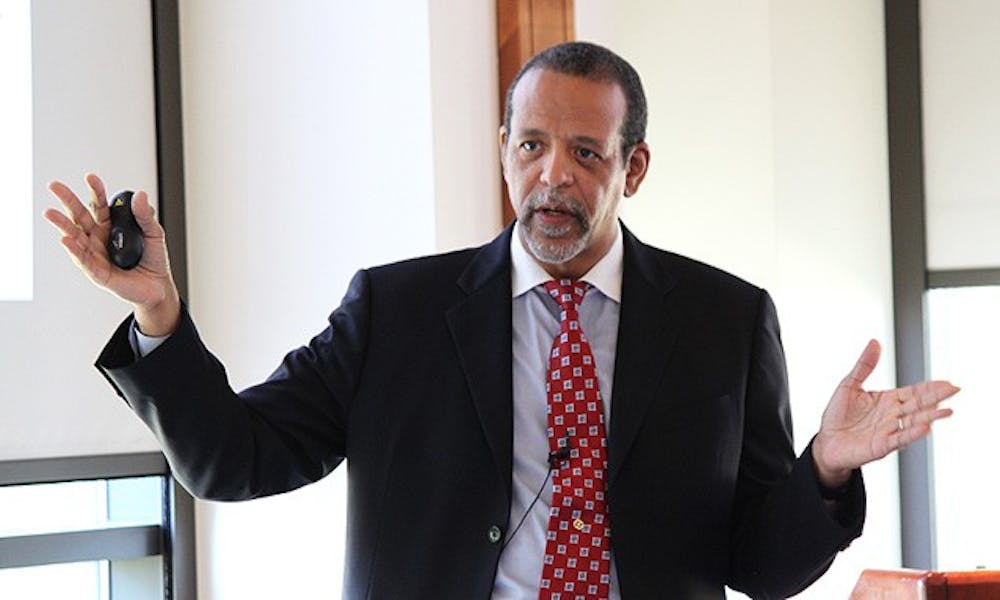The United States cannot continue to be competitive internationally unless improvements are made to its public school system, a Harvard professor said.
Ronald Ferguson, senior lecturer in education and public policy at the Harvard Graduate School of Education and the Harvard Kennedy School, discussed Tuesday the achievement gap in public schools and highlighted possible solutions to strengthen future opportunities for American children. Ferguson addressed Duke faculty, teachers and members of Durham Public Schools’ board of education in a lecture sponsored by Duke’s Center for Child and Family Policy.
The main challenges facing U.S. students include stagnant high school graduation rates, variations in standardized test scores and nominal earnings between racial groups, Ferguson said. Consequently, the U.S. is lagging behind other countries.
“There are 14 countries outperforming even our best and brightest,” Ferguson said. “Bottom line, we are just under-preparing.”
United States education statistics pale in comparison with other nations, he noted.
“If you take out GED [diplomas], our high school graduation percentage has not increased since the 1960s,” he said.
Research, however, indicates that racial IQ gaps are now smaller than in previous decades, Ferguson added.
“For 9-year-olds... black and Hispanic kids’ [test scores] have come up and up,” he said.
Many factors in children’s households, schools and social settings directly impact their academic performance, Ferguson said. Peer pressure in particular can cause students to shy away from participating in the classroom.
“It’s as if students are being suppressed by something they have no control over,” he said. “It’s ‘cooler’ to act lazy than stupid.... Right now, we have lots of kids who are lost.”
Although Ferguson highlighted specific areas of society that he believes require change, he said progress in all sectors will enhance students’ educational opportunities.
“It’s not just about schools; it’s not just about families; [and] it’s not just about the business community,” Ferguson said. “It’s about all of those things.... We can make huge progress.”
Erika Hanzely-Layko, meeting and events coordinator at the Center for Child and Family Policy, said she found Ferguson’s background particularly interesting, noting that he was raised by his grandmother in a low-income community.
“The most interesting thing... is that he grew up in a neighborhood that was impoverished and yet here he is,” Hanzely-Layko said. “I am curious to know how he overcame those sorts of obstacles to get to where he stands today.”
Nancy Cox, a member of the DPS Board of Education, said she appreciated Ferguson’s insight into both successful educational initiatives and potential areas for improvement. Ferguson’s push for localized reform can bring major positive changes, she said.
“We need to stop looking for somebody else to get the ball rolling,” Cox said.
Ferguson noted that individuals and communities should work together to tackle the disparity in the quality of education.
“The challenge is to give all kids the life experience to equip [them] with the skills they need,” he said.
Get The Chronicle straight to your inbox
Signup for our weekly newsletter. Cancel at any time.

